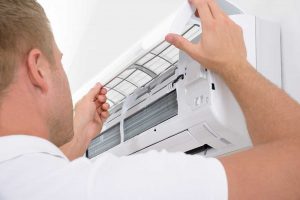Do Air Conditioners Lose Efficiency Over Time?
When the sweltering heat of summer arrives, air conditioners become our reliable companions, keeping our indoor spaces cool and comfortable. However, like any mechanical system, air conditioners may experience a decline in efficiency over time. Understanding the factors contributing to this decline and learning how to maintain your air conditioner can help you keep it performing optimally.
Factors Affecting Air Conditioner Efficiency
1. Wear and Tear: Just like any other appliance, air conditioners are subject to wear and tear as they operate over the years. Components such as motors, fans, and compressors may experience mechanical stress, leading to reduced efficiency.
2. Lack of Maintenance: Regular maintenance is crucial to ensure your air conditioner operates efficiently. Dust, dirt, and debris can accumulate on the coils and filters, hindering heat exchange and airflow. This buildup forces the system to work harder and consume more energy, resulting in decreased efficiency.
3. Refrigerant Leaks: Refrigerant is the lifeblood of an air conditioning system. Over time, tiny leaks can develop in the coils, causing the refrigerant level to drop. Inadequate refrigerant levels can lead to decreased cooling capacity and higher energy consumption.
Signs of Decreased Efficiency
Recognizing the signs of reduced air conditioner efficiency can help you address issues promptly and restore its performance:

1. Longer Cooling Times:
If your air conditioner takes longer than usual to cool your space, it may be a sign that the system is struggling to maintain its cooling efficiency. This could be due to clogged filters, low refrigerant levels, or other mechanical issues.
2. Increased Energy Bills:
One of the most noticeable effects of reduced efficiency is a spike in your energy bills. As the air conditioner works harder to achieve the desired temperature, it consumes more energy, leading to higher monthly costs.
3. Uneven Cooling:
If you notice significant temperature variations in different areas of your home, it could indicate that your air conditioner’s distribution system is compromised. This could be due to blocked ducts, damaged fans, or other issues affecting airflow.
Maintaining Air Conditioner Efficiency
While it’s natural for air conditioners to experience some decline in efficiency over time, proper maintenance can significantly extend their lifespan and keep them performing well:
1. Regular Cleaning:
Clean or replace air filters every 1-3 months, and ensure that the coils are free from dirt and debris. This allows for efficient heat exchange and airflow, reducing strain on the system.
2. Professional Tune-ups:
Schedule annual maintenance visits by HVAC professionals. They can inspect the system, check for refrigerant leaks, lubricate moving parts, and make necessary adjustments to optimize efficiency.
3. Sealing and Insulation:
Ensure that your home is properly sealed and insulated to minimize heat transfer. This reduces the workload on your air conditioner and helps maintain a consistent indoor temperature.

4. Timely Repairs:
If you notice any unusual sounds, odors, or performance issues, don’t hesitate to call for repairs. Addressing problems early can prevent further damage and maintain efficiency.
Conclusion
Do air conditioners lose efficiency over time? The answer is yes, but with proper care and maintenance, you can mitigate the decline in efficiency and keep your air conditioner running smoothly for years to come. Regular cleaning, professional maintenance, and addressing issues promptly are key to ensuring that your cooling system remains energy-efficient and effective, even in the hottest of summers. For jb air conditioning lifespan see here.


